Somerset Levels Flood Action Plan: The future
- Published
More than two months on from some of the worst flooding ever seen in Somerset, a draft 20-year flood action plan is being prepared to hand to environment secretary Owen Paterson.
Mr Paterson has asked for a "single, overarching plan" that will guide water and land management policies and investment on Somerset's Levels and moors.
Ahead of the report's publication the BBC's Emma Hallett has been catching up with some of those living on the Levels to gauge their views on what they think could lessen the effects of flooding in the future.

Colin and Sally Squair have lived on the Somerset Levels for 14 years. Their home in Aller is the lowest in the village and they were forced out just after Christmas when they were hit by flood water on two sides of the cottage.
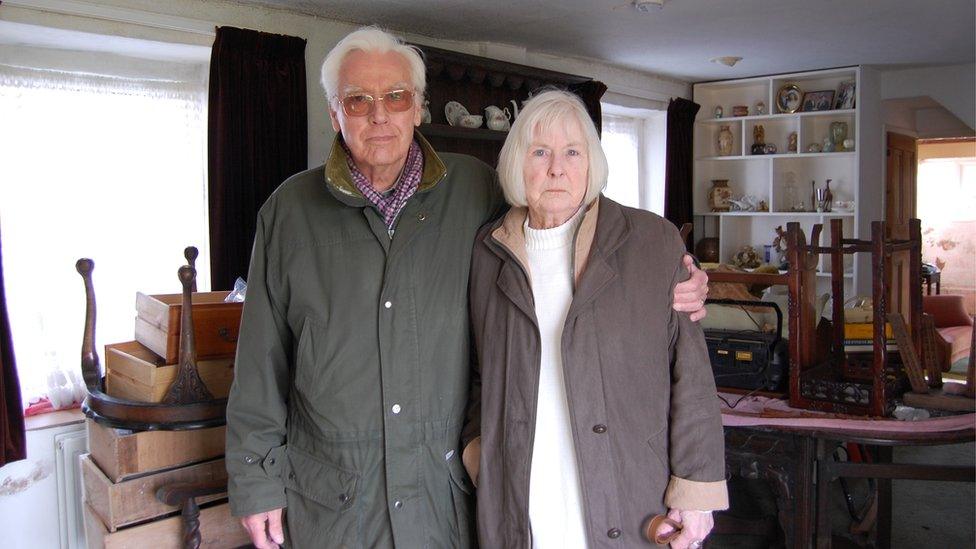
Mr Squair, 77, said: "They just need to stop [the flooding]. I'm so fed up with it. They just need to get on and do something about it.
"The sluice gates are useless. They don't work for some reason, they don't stop the water coming, so that needs looking at. It's also the rivers, they want dredging out and doing properly. I'm just at the end of my tether with it."
Mrs Squair said she would like to see more local control of water management across the Somerset Levels with something being done to ease the movement of the water in the tributaries and drainage channels.
The 76-year-old said they had had "tremendous help" from organisations such as the Flooding on the Levels Action Group (Flag), but said more help was needed for uninsured homeowners.
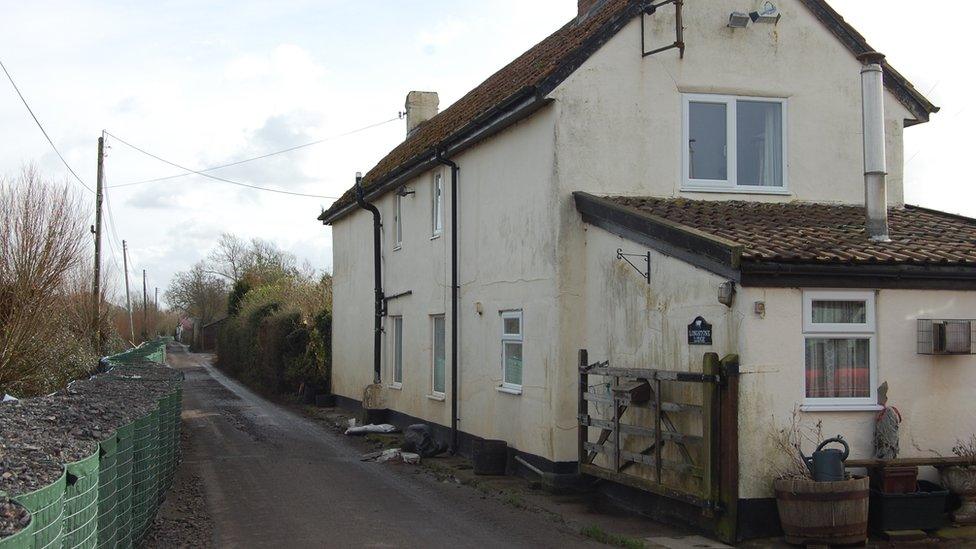
Colin and Sally Squair's cottage was flooded two days after Christmas with about a foot of water filling the kitchen and downstairs living areas

Sally Edwards, 53, moved to Burrowbridge on the Somerset Levels just a month ago, in the midst of the flooding.
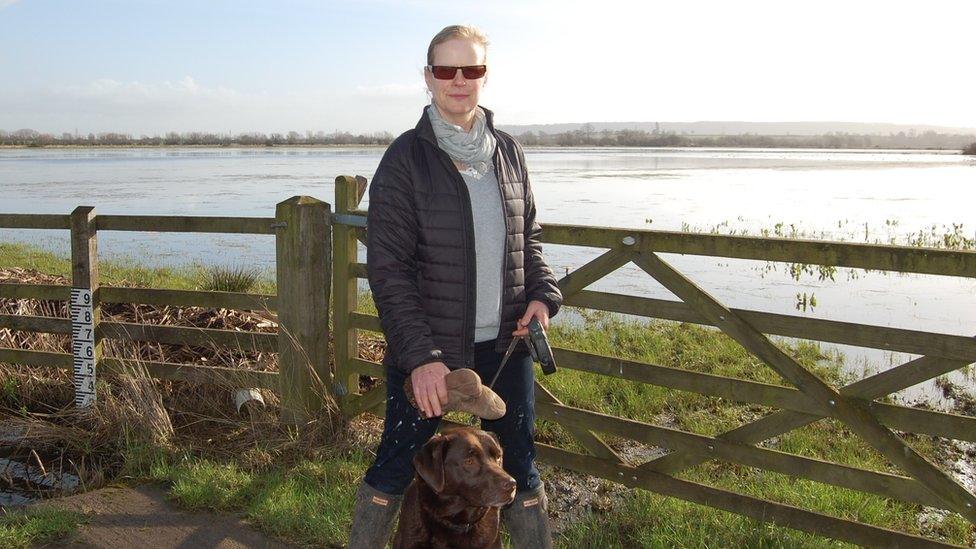
"Watching all that has gone on has been quite traumatic," she said.
"Obviously, we are just learning what is involved... and the dredging is very, very important, but other things I have picked up [include] the maintenance of the sluice gates and all the other things that go with the waterways.
"Also, just taking advice from other people, I know people have voluntarily come over from Holland to give advice and also to take on board as much as possible from the people locally that know more than we do.
"The whole system has to work together, it is not just one element and it is not as simple as just dredging, it is everything else that goes with it."

Elizabeth Nightingale, 63, has has lived in Muchelney Ham for 17 years and in the Muchelney area for 34 years. The retired GP and "hobby farmer" saw her farm house, holiday cottage and about 30 acres of land submerged by dirty brown water.
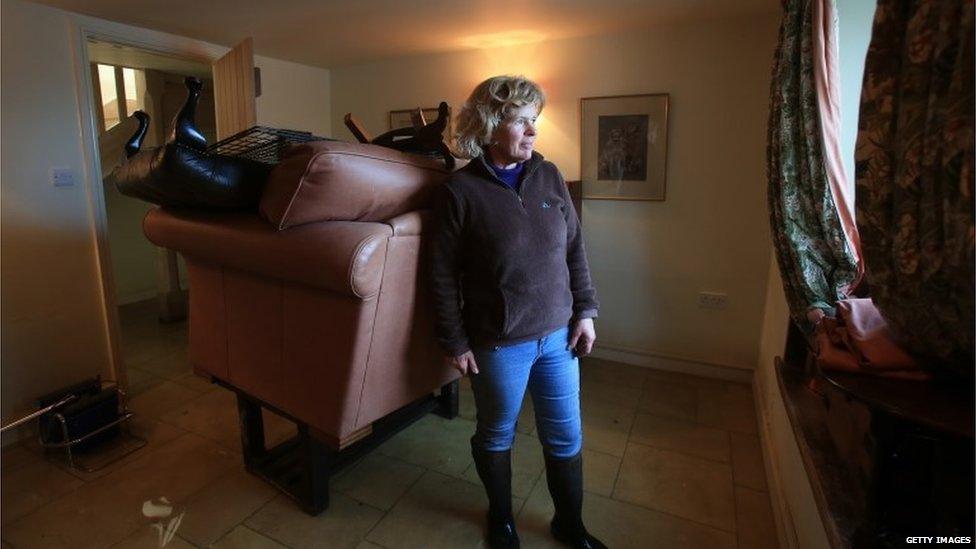
Mrs Nightingale accepts the area is a flood plain but says people have lived there for many years without the kind of problems seen over the last few years.
She believes the area needs more management and that along with immediate dredging of the rivers Tone and Parrett there needs to be investment in flood infrastructure, including more pumps, pumping sooner and better draining.
"You can't just leave it to nature," she said.
"The Levels have been managed for thousands of years. It is a managed environment. It was dredged by the Dutch and was managed after that, satisfactorily, but man gave up managing it.
"Dredging is not the only answer, the whole area has to be managed, but to my mind the dredging is the first thing that should happen because the river is only running at 60% capacity.
"We also need to be able to slow the water down by planting more trees and putting in more peat which is more absorbent. The water now reaches us in eight hours - it used to take 24."

Retired firefighter Malcolm Rawnsley saw flood water rise to within inches of his house in Westonzoyland near Bridgwater. His neighbours had a barrier built around the back of their properties.
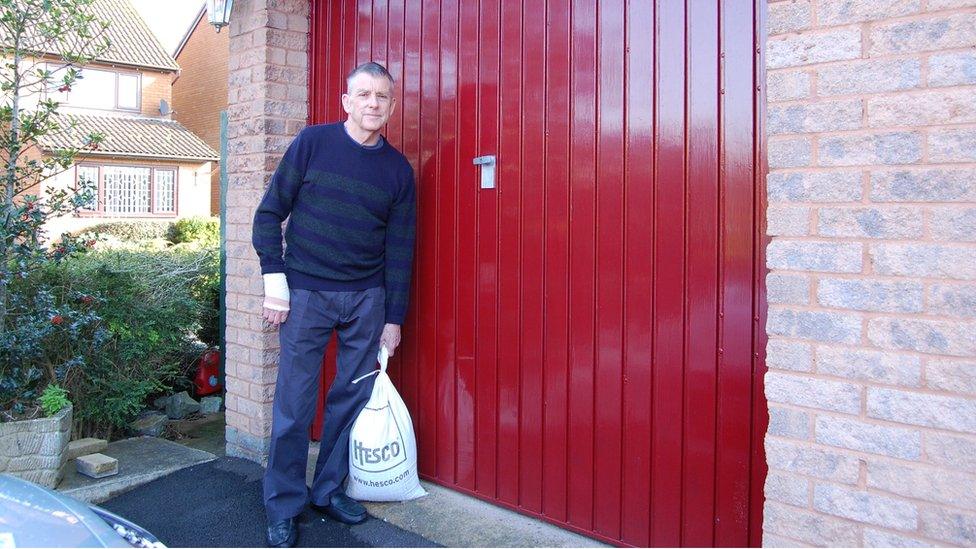
"One of the prime things that many people have been discussing over the years is the dredging - we know this is going to commence but I would like to see this done to a very high standard and I think there are doubts at the moment [about] quite how well it will be carried out," the 68-year-old said.
Mr Rawnsley said there needed to be greater regulation around planning permission on flood plains to stop future houses flooding and to reduce urban runoff.
"These houses are on a flood plain and we weren't told that when we purchased [our house]," Mr Rawnsley said.
"Apparently, most of the village at the time were against this estate being constructed and, of course, no-one took notice, and those of us that came from outside the area had no idea."
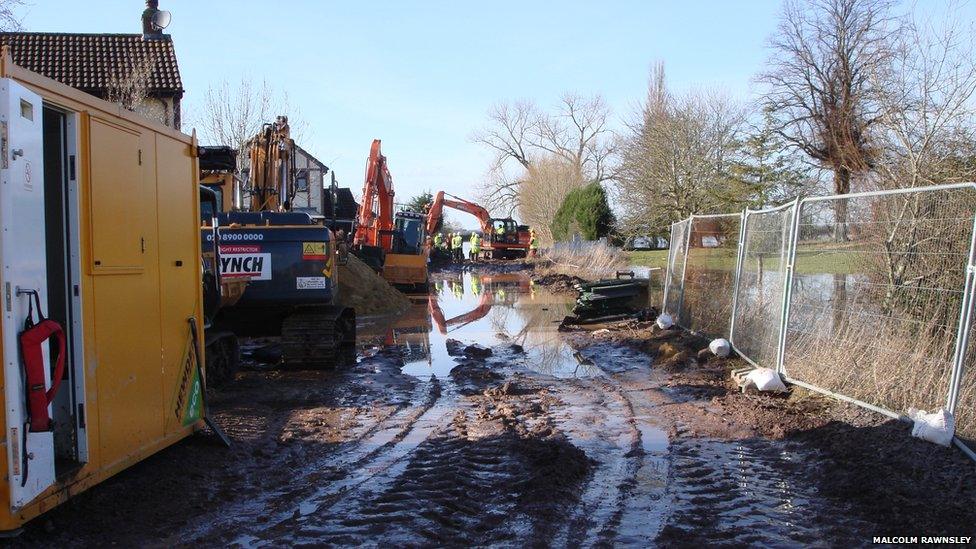
Flood defences were erected around the back of a number of houses on Grays Avenue in Westonzoyland

Theresa Perkins, originally from Scotland, moved to Aller on the Somerset Levels 10 years ago.
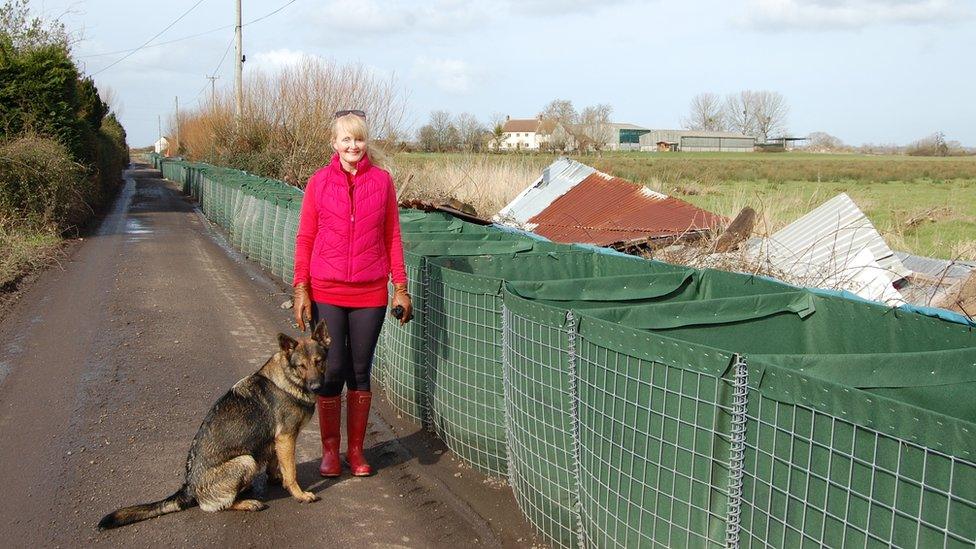
The 49-year-old said she would like to see more local control of flood management, because it was "the local people that suffer".
She said her house has not been flooded and the biggest impact was the extra time spent trying to get to work because of road closures.
"The main disadvantage for me has been the extra miles I have to travel, everywhere is a long way round and sometimes you have to drive back to find another road that is not blocked," she said.
"So, I think they need to make it easier for people to get out of the flooded areas when it does flood, making sure there is access there."

Martin Wall says he is lucky that his property is on a hill in Pathe overlooking the floods, but says that after witnessing flooding on the Levels over the last 14 years there needs to be an acceptance that this will happen more frequently.
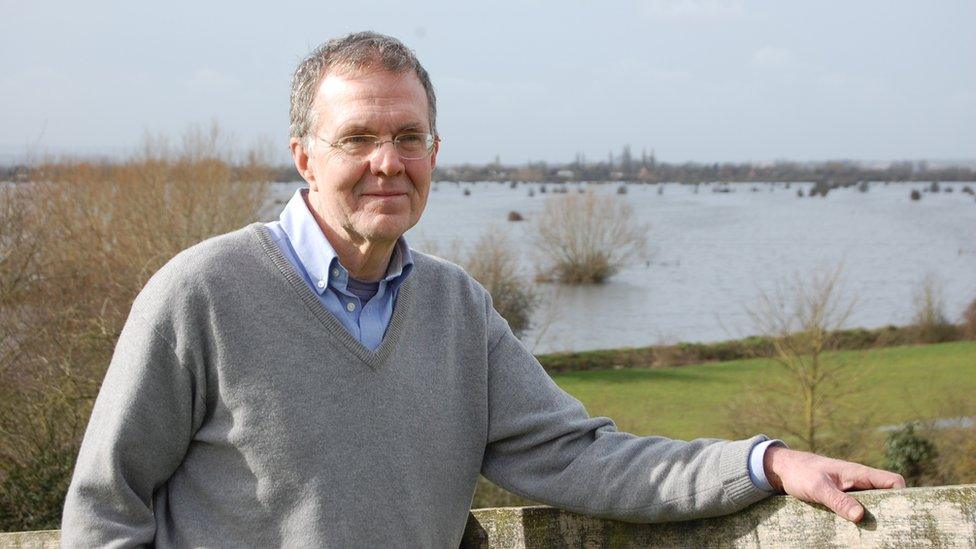
"There needs to be an acceptance that some of the areas are going to flood more because of climate change and we need to live accordingly," Mr Wall said.
"There needs to be compensation paid to those properties that have been fine for the last 200 years, but where things are changing.
"It is that notion of relocation of vulnerable properties, an acceptance of climate change and our part in that, and a much more a holistic solution to just how the whole world deals with the changes in general."
- Published4 March 2014
- Published23 February 2014
- Published19 March 2014
- Published21 February 2014